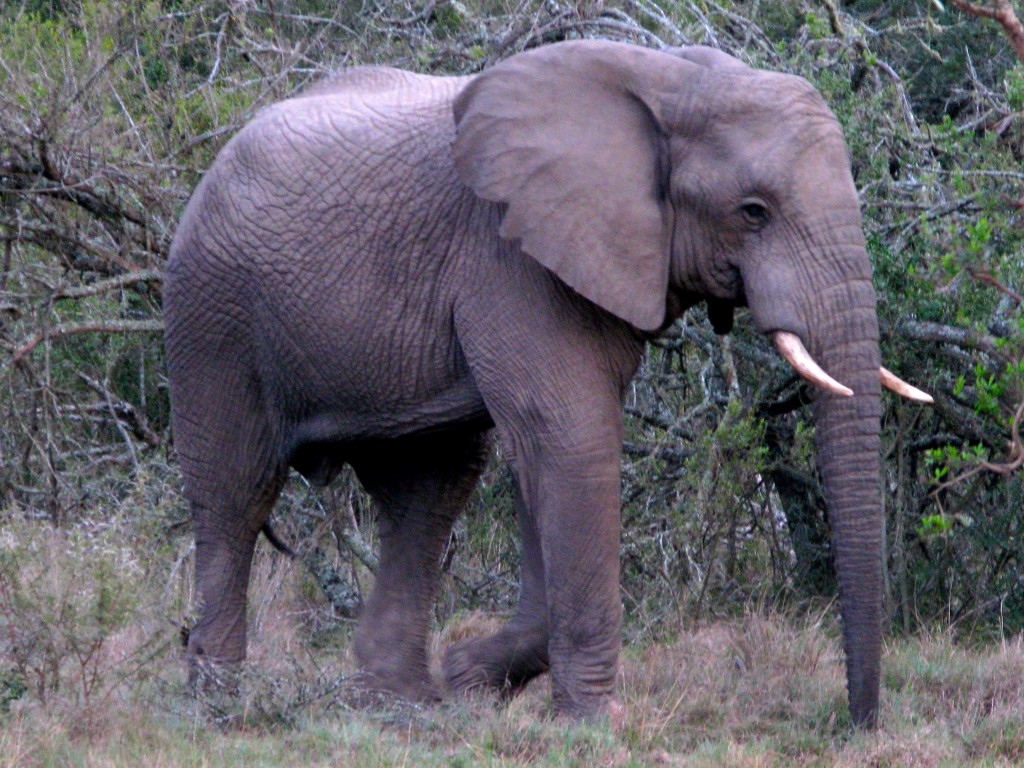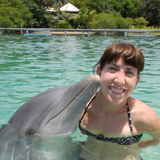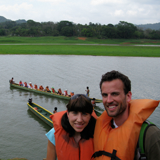During our stay at Addo, we learned so much about elephants as we interacted with them and spoke with our incredible guides. Ellie facts are so crazy cool that they deserve their very own post! Here they are:
- Elephants require around 16 hours of grazing time a day. Their digestive systems are very inefficient, and only 45% of what they eat actually gets broken down into usable nutrients.
- A single elephant produces between 100 and 160 kg of dung per day…good news if you’re a dung beetle!
- Forget the phrase “hung like a horse”; it’s “hung like an elephant” from now on. Male African Elephants must have a penis of at least a meter in length before it’s even possible for them to mate. They reach mating age when they’re about 25 years old, and a single ejaculation emits around 1 liter of sperm. Sorry to be so graphic, but you gotta admit that it’s impressive.
- Elephants grind their way through six complete sets of teeth in a lifetime, and it’s usually malnutrition/starvation from having ground through their last set of teeth that causes their death in the wild around age 65.
- A baby elephant weighs, on average, a whopping 120 kilos (264.6 lbs.) the moment it comes into the world. That’s a big baby!
- Even though an elephant’s skin is tough enough to let them crash through thickets of thorn trees without batting an eye, it’s sensitive enough that they can be annoyed by a tiny little fly.
- Elephants are very like human beings in terms of family structure and respect for elders. Young elephants are quite impressionable and learn how to be a father/mother and contributing member of the group from their older counterparts.
- When elephants die, anthropologists and biologists have both studied their elaborate mourning rites. When they come upon a dead elephant, they smell the carcass/bones to figure out whether it is the remains of an elephant from their herd. If they determine that they knew the elephant, they stand for one to two hours in silence around the carcass. They then ritualistically scatter the bones of the dead elephant around the area, tossing them and making noises for another couple of hours, moving on from the area only when the bones are completely strewn about.
- How very human…right? Or, wrong? We had a discussion with our guides about the concept of anthropomorphism, and we wondered if we were humanizing ellies too much. Neither they nor we think that we are. How can one not see the striking parallels between ourselves and an animal that mourns its dead in that way and raises its young in the way that elephants do? Sadly, in addition to the purposeful sort of culling in bigger parks like Kruger, illegal poaching still exists, and tusks are valuable. In this day and age, killing such an animal–whether for its tusks, for the purposes of reducing the size of a herd, to put its head on a wall, for the thrill of a recreational hunt, or just for spite– is, in our minds, just plain wrong.





















